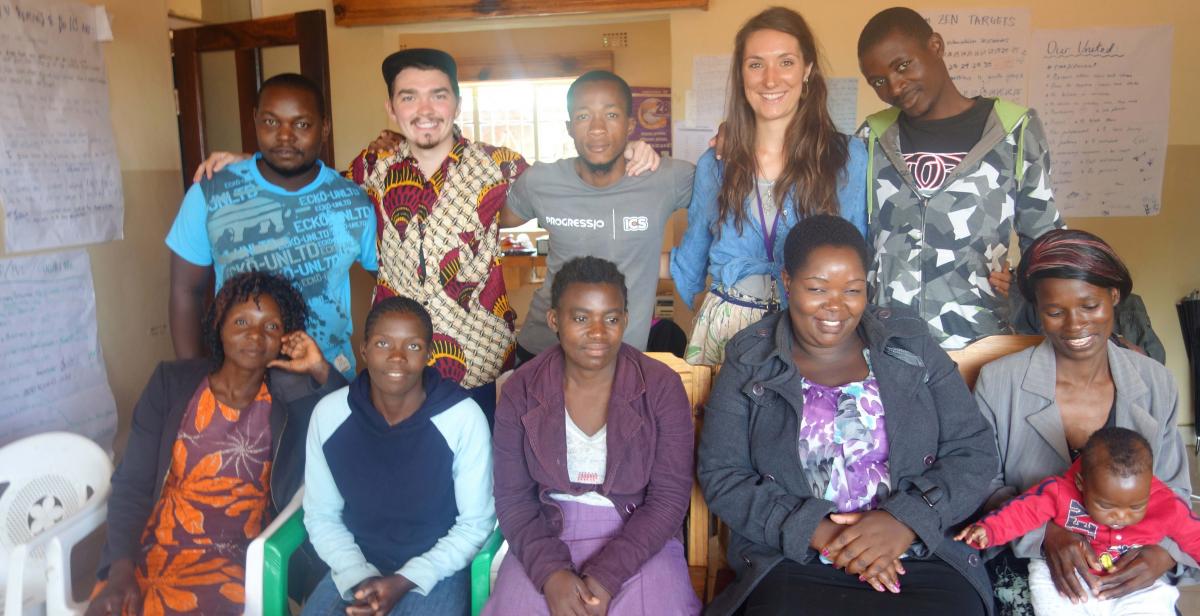As part of the International Citizen Service (ICS) programme in Malawi, each team is given the opportunity to design and implement their own ‘Special Project’. This is a brilliant opportunity to identify an issue within the community, and improvise a means of tackling it during your placement. At the Centre for Girls and Interaction (CEGI - our partner organisation), our team leaders encouraged the team to start thinking about our Special Project very early on. This was a great idea, because it allowed us to fully brainstorm, research, design and implement the whole project. This was greatly rewarding for us as a team, as we watched our beneficiaries reap the rewards of the project we designed to help them. This is the story of the Skills to Empower Programme (STEP).
As a team of sixteen, Team Zeneko had a massive range of ambitious ideas for our project. After brainstorming, we eventually identified three different ideas; a skill-sharing programme for sex workers, a recycling and waste management programme for women, and a chicken-sharing scheme for young families in the community. Following a democratic vote, the team agreed to design a skill-sharing programme that would benefit sex workers in Chibavi, our neighbourhood. I was lucky enough to be selected as leader of the project, alongside Sara, another volunteer in my team.
At our mid-term review, we were prepared to present this idea to Progressio and our partner organisation. Sadly, they rejected the idea of working with sex workers. While this was a disappointing result, we knew that we must quickly identify a new beneficiary, as time was not on our side. After a long meeting with CEGI, it became clear that Chibavi was oversaturated with single mothers, who had little to no income, or were depending on relatives. It became clear that they were a group who greatly needed our help.
Identifying beneficiaries had been an issue with the previous team working with our partner organisation. Luckily, Team Zeneko has always maintained a strong relationship with religious leaders. This relationship became our link to the local community, as religion is such a large part of Malawian life. Our dedicated group of religious leaders short-listed young mothers from their congregations, and passed their details onto us – they were imperative in making the project happen. Our in-country volunteers quickly began interviewing women over the phone, understanding their family situations and determining their suitability for the programme. Eventually, we found eleven women who could potentially benefit from learning new skills and starting up a small business.
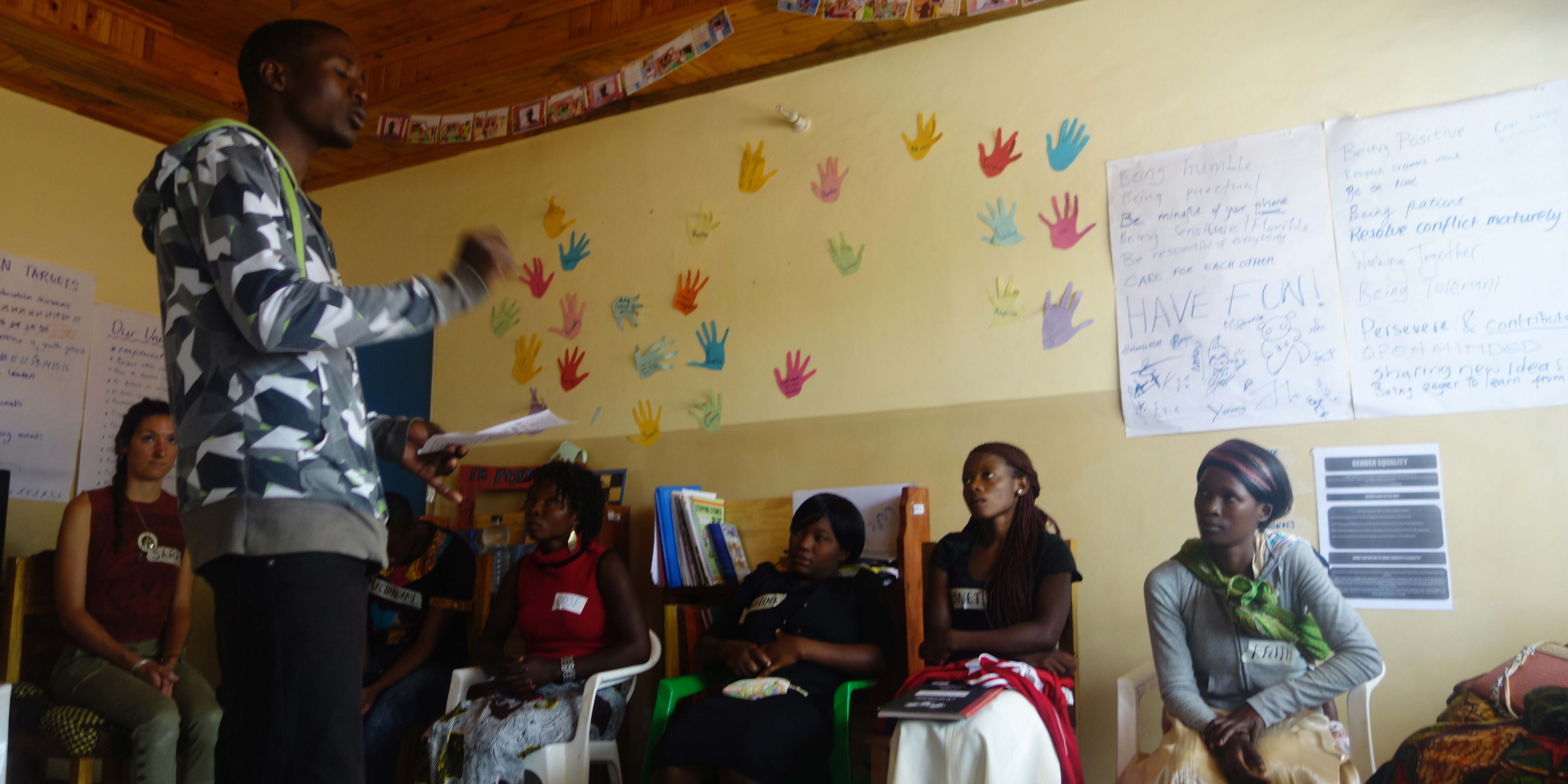
Our next challenge was to identify a skill to teach. We eventually settled on a four-session learning syllabus, focusing on nutrition, sexual reproductive health and gender equality, entrepreneurship and a practical skill that would generate income. We had to identify that skill.
Our initial idea involved teaching women to make clay stoves to sell at local markets. As market research, we visited a group of women who already make these stoves. The stoves were very similar to the ones used in many households across Chibavi – there was no gap in the market. We also planned to make briquettes, an environmentally friendly replacement for coal, made from sawdust. However, briquettes are expensive and time consuming to produce, and would ultimately cost more than charcoal. Sadly, few families in Chibavi would be in the financial position to pay more for an environmentally friendly alternative to coal. It became clear that we needed to re-think.
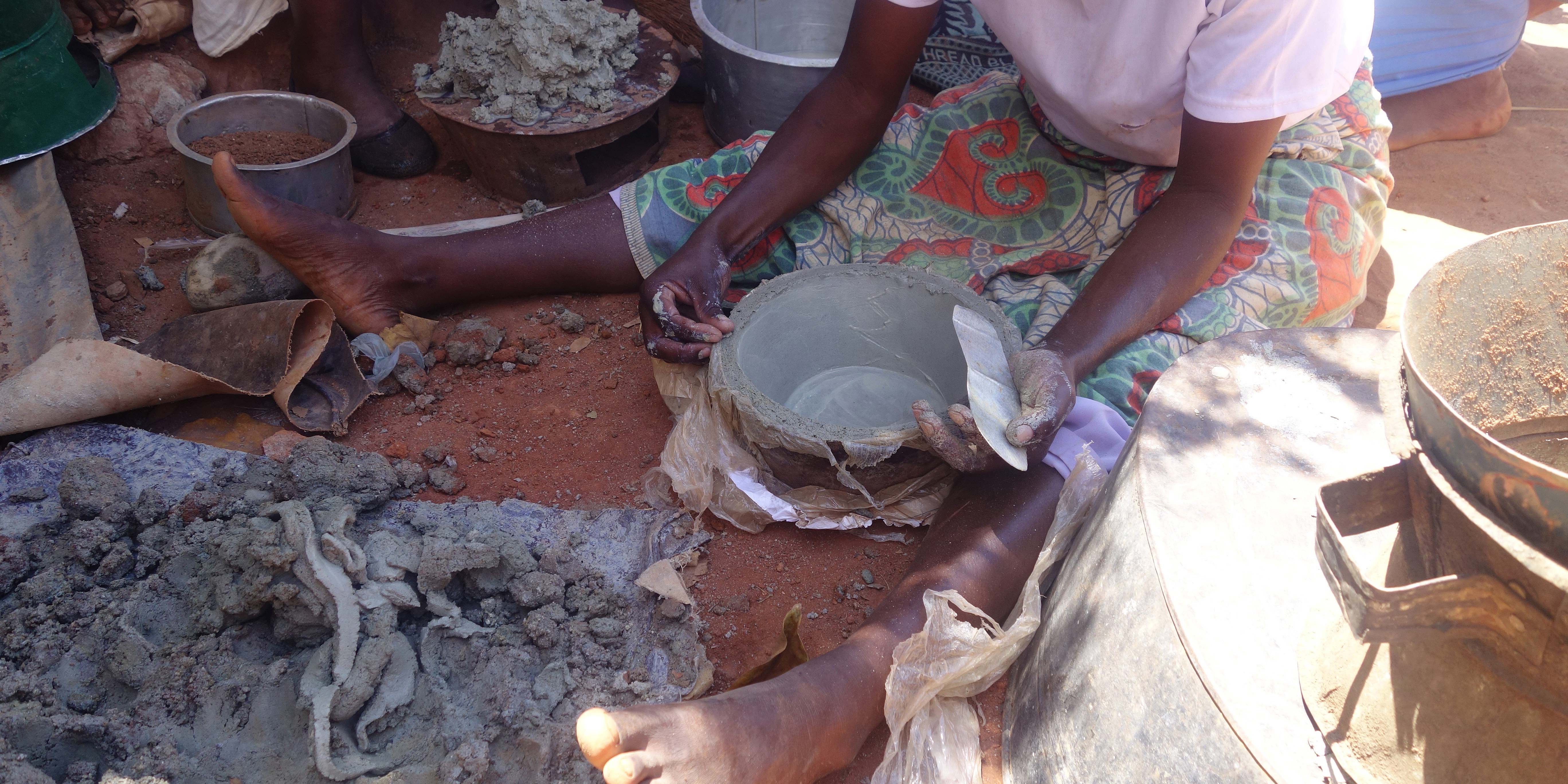
Our next idea focused on building a community oven. This oven would be based in a communal space, and all our beneficiaries would be able to produce baked goods from there. However, the Malawi Bureau of Standards has a strict policy on producing food in a public place. Their certification, which would be essential to ensure the sustainability of the project, was simply too expensive. Another hurdle.
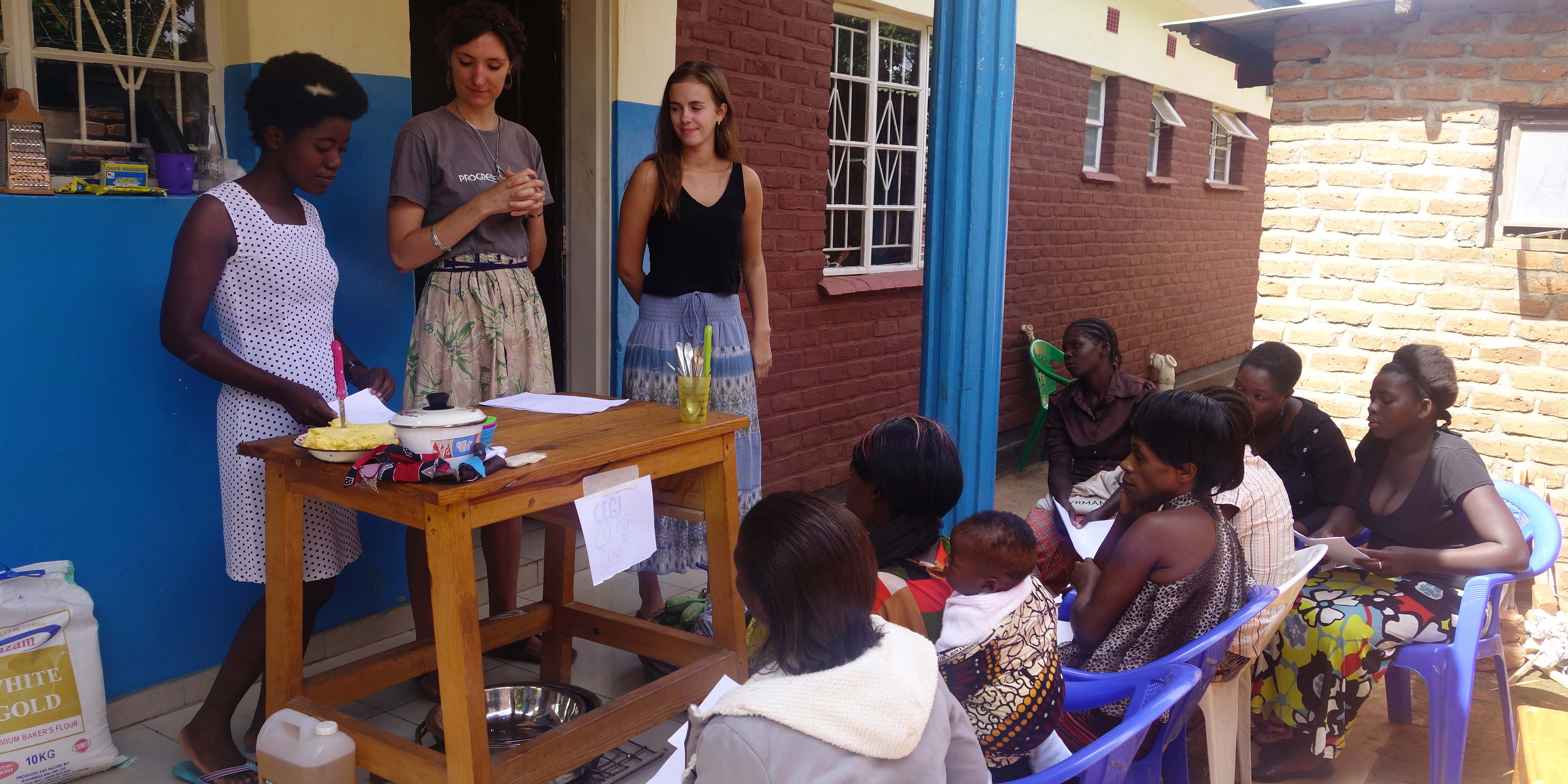
We finally decided to teach baking skills. Local market sellers in Chibavi cook chips, samosas and mandazi (a fried dough) daily. However, their selection lacked sweet treats, such as muffins, cakes and biscuits. After testing ten different recipes, we found five to teach to our participants, including shortbread, banana cake, flatbreads, muffins and crisps (made from potatoes, cassava and sweet potato). The ladies loved learning to bake (and taste test) these new treats! Soon, they began producing them as a group, and selling their stock around their local communities.
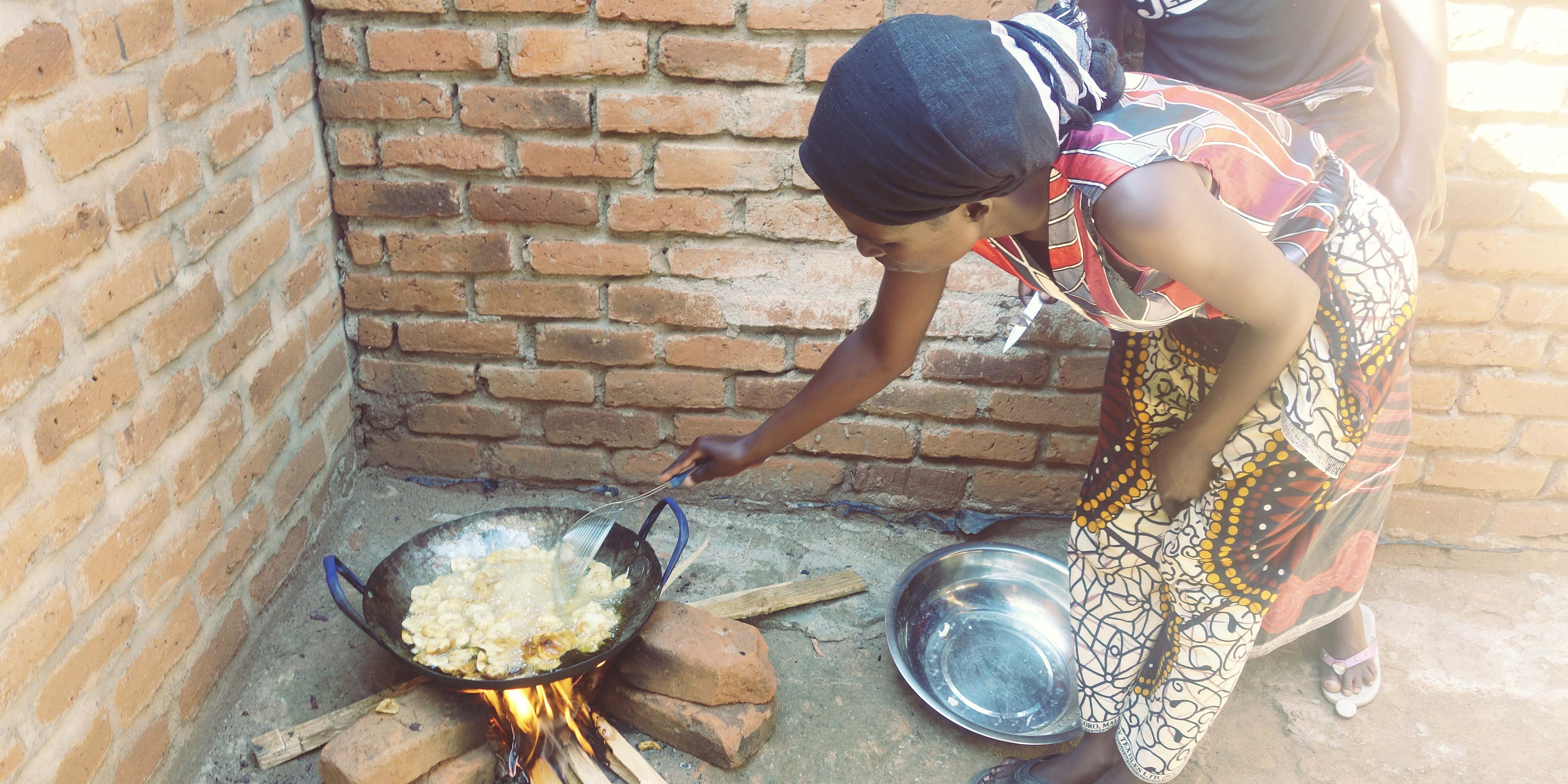
When we left Chibavi last month, the group had completed their training and were reinvesting their initial profits into producing more goods. It was so exciting to watch their business flourish, and it became clear that this entrepreneurial approach was a positive way of tackling inequalities.
STEP is more than JUST baking. The group is a community of like-minded women who come together, supporting one another. It is an excellent opportunity for women to learn tangible, income-generating skills, and encourages entrepreneurship that will, hopefully, define these families moving forward. The project asks participants to introduce a new single mother to the programme after two months, creating a new cycle of women who will learn skills from the previous group.
While not without its challenges, the Skills To Empower Programme was an exciting project to design and produce, and was definitely a highlight of my ICS experience. If you are considering becoming an ICS volunteer with Progressio in Malawi or Zimbabwe, take advantage of your special project to tackle a problem you identify while living in the community!
Written by ICS Alumni Nathan Penman (October – December 2015 cycle, Mzuzu, Malawi)


